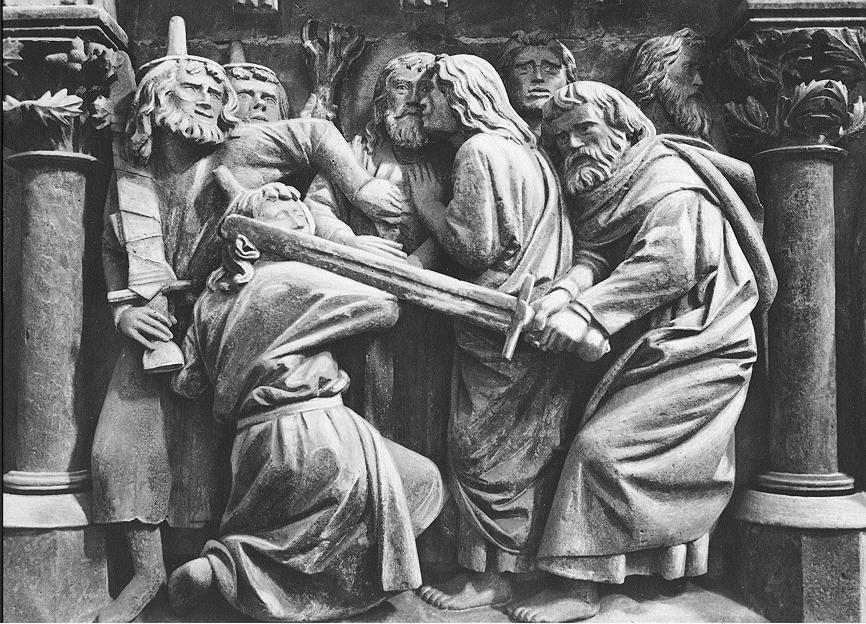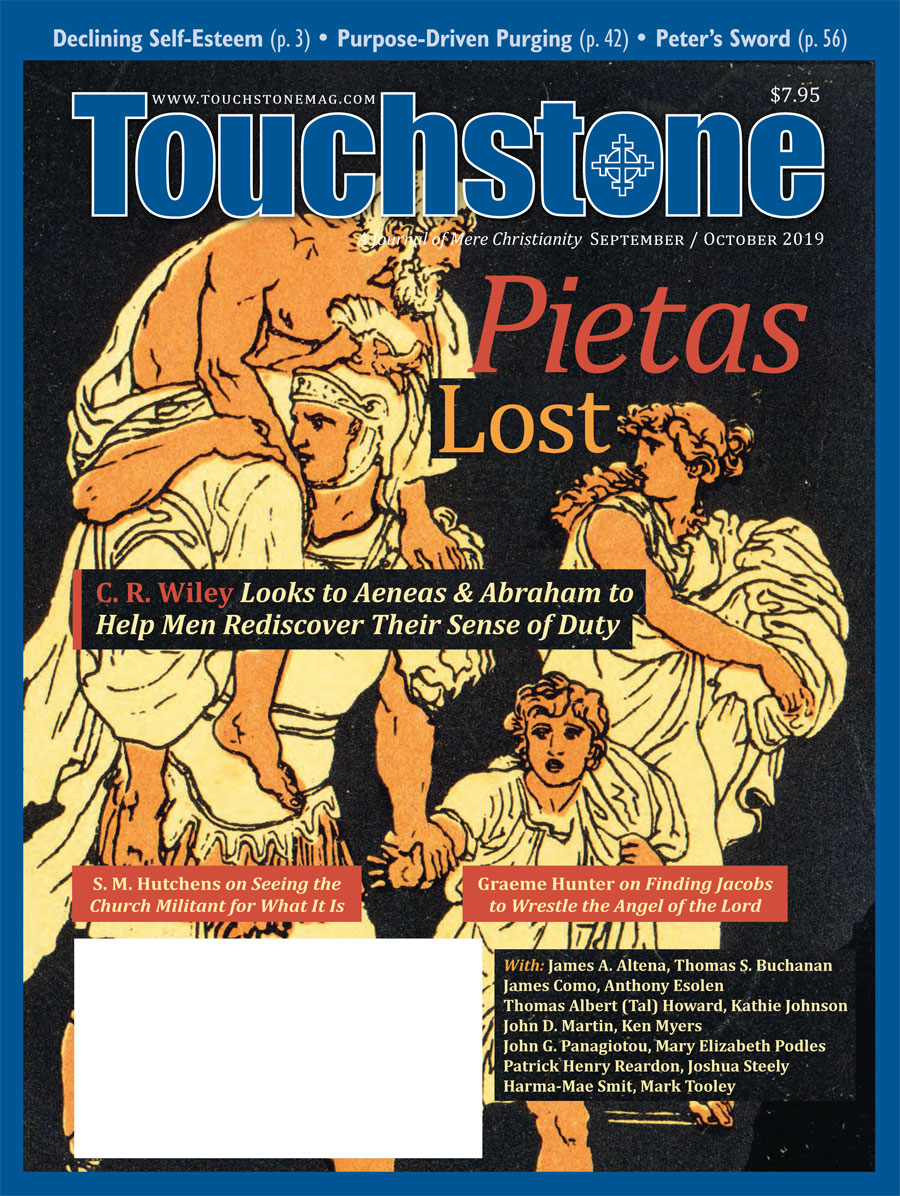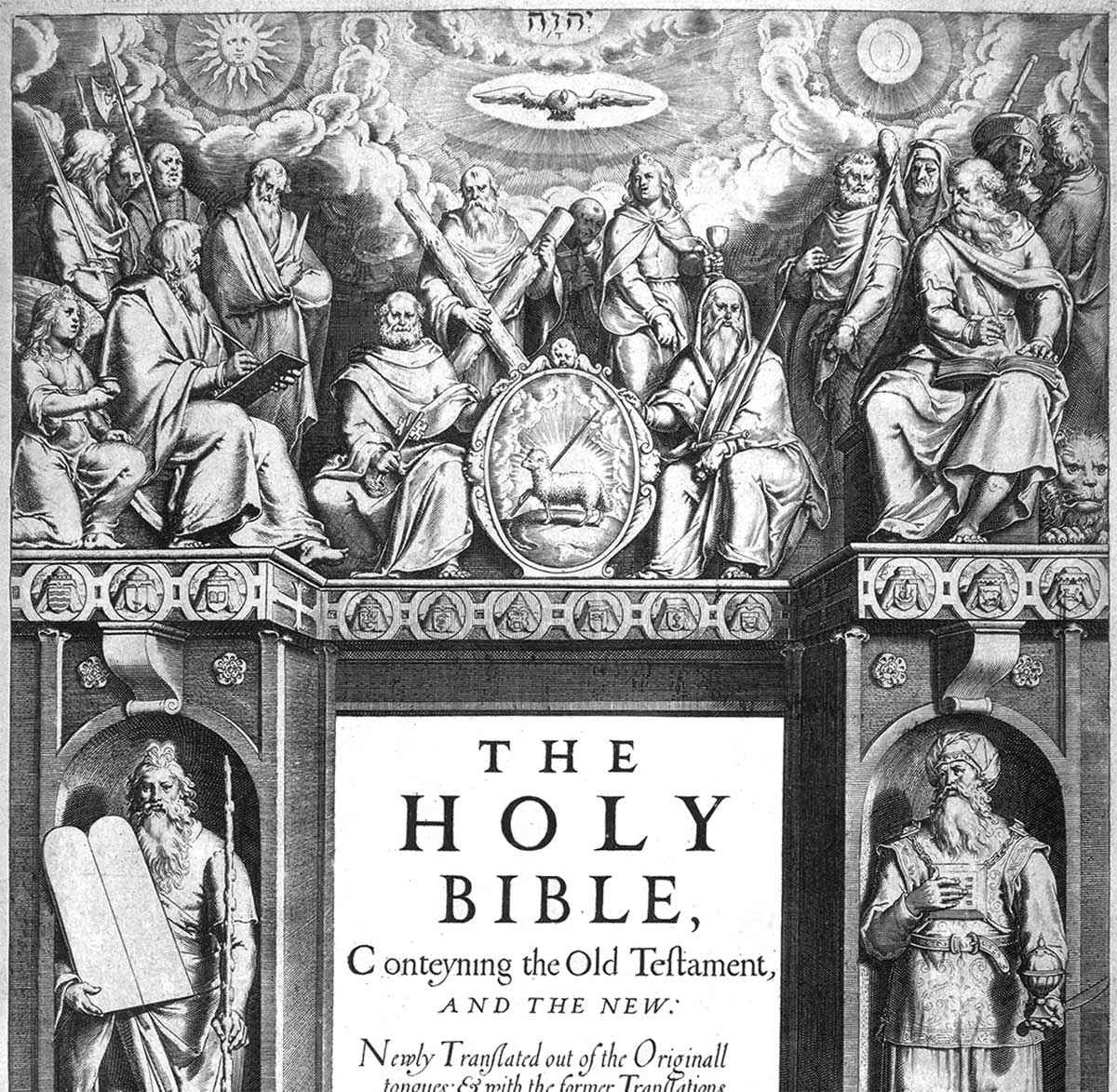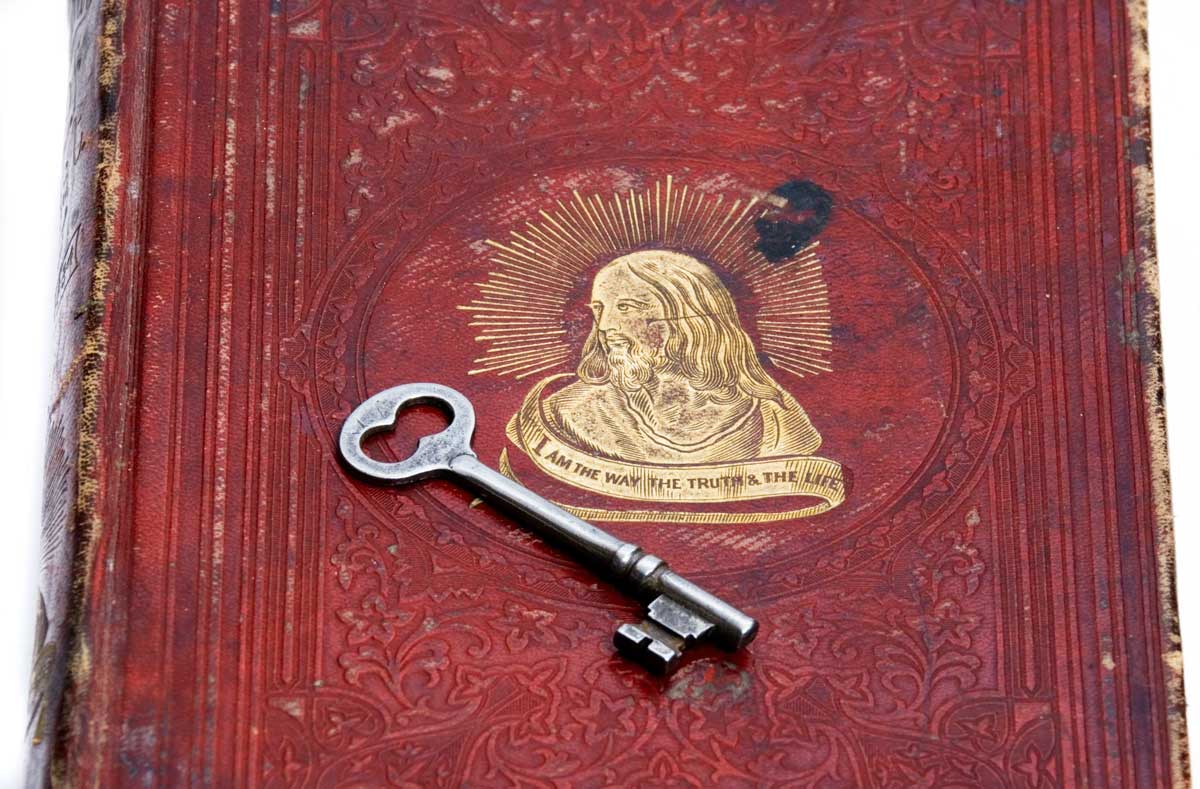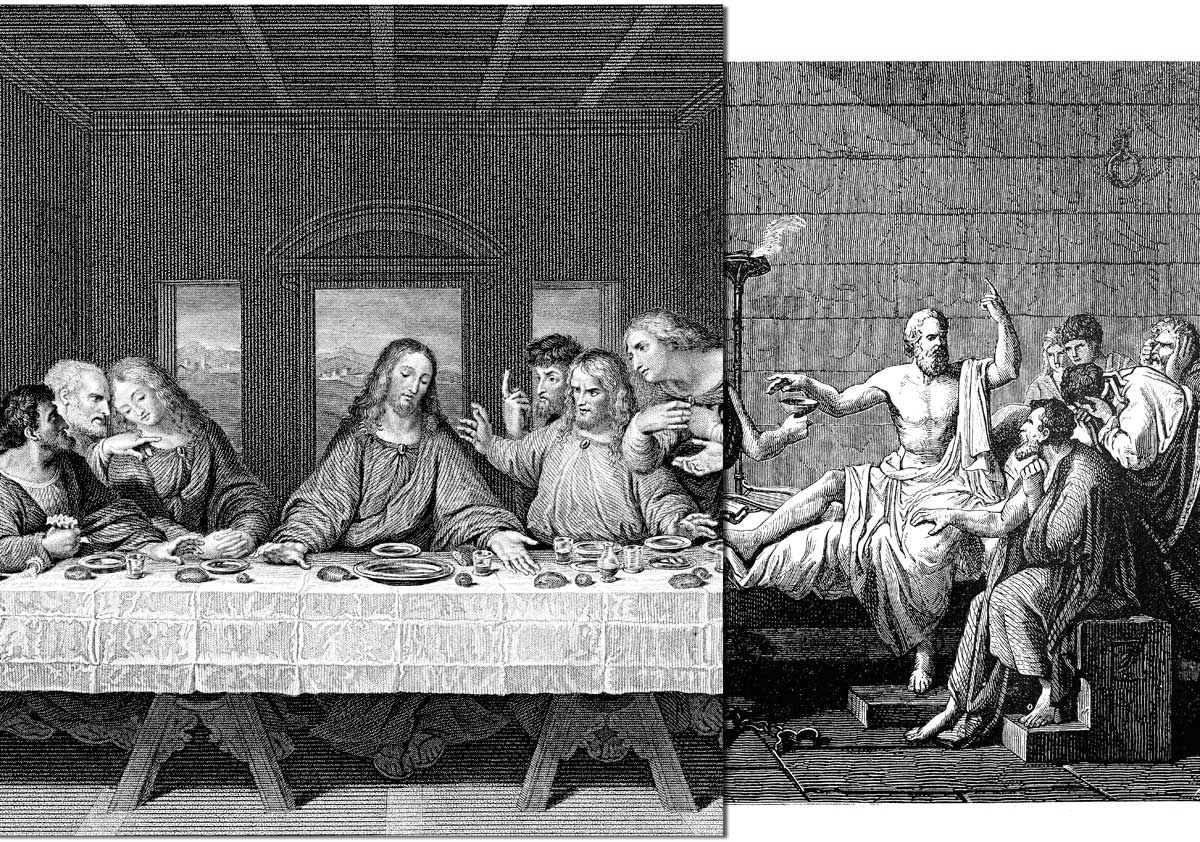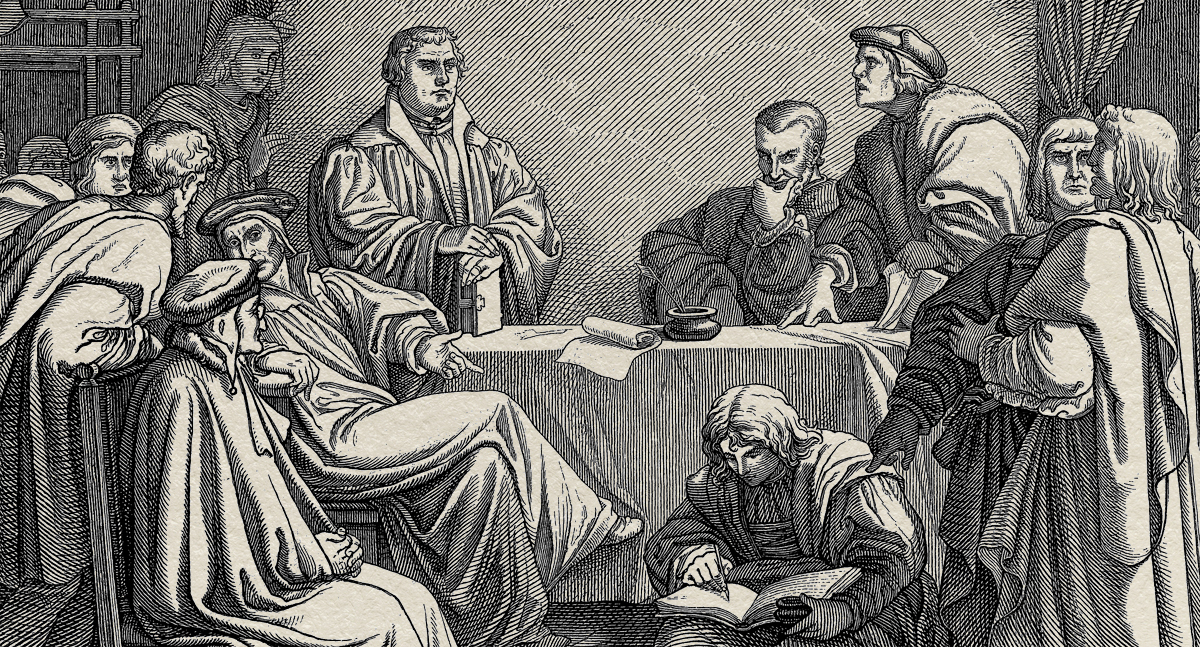As It Is Written . . .
Peter's Sword
by Patrick Henry Reardon
Although the Apostle Peter enthusiastically confessed the identity of Jesus, he was much slower in accepting the message of the Cross. In fact, when Jesus first spoke of his coming Passion, Peter's immediate response was, "Far be it from you, Lord; this shall not happen to you!"
So Jesus, having declared Peter "blessed" for his profession of faith, was obliged—within the span of just a few verses—to tell him, "Get behind me, Satan! You are an offense to me, for you are not mindful of the things of God, but the things of men" (Matt. 16:16–23).
How did Peter accept this reproof? The Gospels do not inform us, in so many words, but a later story indicates that the apostle did not take it very well. At least, the message seems not to have "sunk in." Let me elaborate:
Everyone knows that Peter, during Jesus' trial before the Sanhedrin, denied even knowing him. According to the Gospel records, Peter made this denial three times. I want to suggest, however, that Peter, earlier that same night, had already denied what Jesus stood for. Before explicitly denying Jesus, Peter had already repudiated the message of the Cross.
The episode I have in mind was described by Matthew: "And suddenly, one of those who were with Jesus stretched out his hand and drew his sword, struck the servant of the high priest, and cut off his ear" (Matt. 26:51). This incident at the time of Jesus' arrest was strong evidence that Peter was still "not mindful of the things of God, but the things of men."
Impeding the Faith
Moreover, the story of the severed ear conveys an ironic symbolism: Bearing in mind that "faith comes by hearing" (Rom. 10:17), we are perhaps justified in understanding this man's loss of an ear as a sort of impediment to faith. Peter amputated the very organ through which a human being normally has access to the gospel. That is to say, Peter's assumption of the sword that night, which effectively repudiated the message of the Cross, had the effect of impeding faith.
Peter's task, as an apostle, was to bring people to faith, but it was quite impossible for him to do that if he behaved in a way that impeded access to Christ. Thus, when he swung that sword at the high priest's servant, Peter effectively renounced the ministry for which Christ had
chosen him.
Comparing Peter's action in this scene with his later denial of Jesus in the high priest's courtyard, I am disposed to believe the former sin worse than the latter. After all, when Peter denied Jesus to the servant maid and others, he was acting in weakness; he was afraid. When however, he swung that sword at the head of the high priest's servant, he was acting in arrogance, pride, coercion, and recourse to worldly power.
"Official" Impediment
A lesson to be drawn from this story is clear enough, but it is instructive how slow the Church has been to learn it.
Peter represents the Church in an official and authorized capacity. No matter how Christians variously interpret Jesus' mandate to him—"I will give you the keys of the kingdom of heaven" (Matt. 16:19)—they have long recognized in Peter's ministry an "institutional" aspect. He represents the Christian body in an "official" capacity. It is Peter's name at the top of the Church's stationery, so to speak.
As believers are accustomed to regard the ministry of Paul as "prophetic," and that of John as "contemplative," so they are disposed to see in Peter a certified spokesman for the "official" Church. This is hardly surprising, since in the Gospels Peter habitually functions that way.
Consequently, Peter's assumption of the sword—just hours after his "ordination" at the Last Supper—is extremely problematic. It raises the question: Is the "official" Church no different from a worldly institution? Are we to expect the authorized spokesmen for the gospel to behave like other men who wield power? It is true that few official churchmen—Pope Julius II comes to mind—have actually taken up a literal sword to assert their place among the powerful of the earth. But it is not unknown for those who enjoy high authority in the Church to lay hold of equivalent instruments. Peter was hardly the last Church official to impose his coercive will by intimidation. When this happens, however, someone's ear is cut off, and the gospel is not heard.
Patrick Henry Reardon is pastor emeritus of All Saints Antiochian Orthodox Church in Chicago, Illinois, and the author of numerous books, including, most recently, Out of Step with God: Orthodox Christian Reflections on the Book of Numbers (Ancient Faith Publishing, 2019).
subscription options
Order
Print/Online Subscription

Get six issues (one year) of Touchstone PLUS full online access including pdf downloads for only $39.95. That's only $3.34 per month!
Order
Online Only
Subscription

Get a one-year full-access subscription to the Touchstone online archives for only $19.95. That's only $1.66 per month!
bulk subscriptions
Order Touchstone subscriptions in bulk and save $10 per sub! Each subscription includes 6 issues of Touchstone plus full online access to touchstonemag.com—including archives, videos, and pdf downloads of recent issues for only $29.95 each! Great for churches or study groups.
Transactions will be processed on a secure server.
more on bible from the online archives
more from the online archives
calling all readers
Please Donate
"There are magazines worth reading but few worth saving . . . Touchstone is just such a magazine."
—Alice von Hildebrand
"Here we do not concede one square millimeter of territory to falsehood, folly, contemporary sentimentality, or fashion. We speak the truth, and let God be our judge. . . . Touchstone is the one committedly Christian conservative journal."
—Anthony Esolen, Touchstone senior editor





